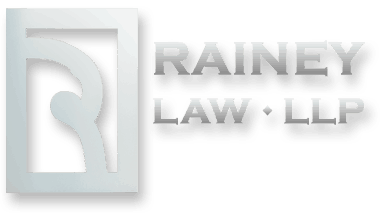“I just want a simple will.” People who ask for a simple will are saying they want everything to go outright to their designated beneficiary. The beneficiary they designate is usually a surviving spouse or other adult member of their family. However, many people choose to utilize the trust as a part of their will once they understand the pros and cons of each choice.
Possible Events Where No Trust is Utilized
Each will is prepared with the thought that your beneficiary will survive you. However, good planning requires that secondary beneficiaries be considered and named. Many times, these secondary beneficiaries should have additional consideration given to them in a way that they will receive and use the gifts which you give them.
For example, if your minor children are to receive your estate because your primary beneficiary, perhaps your spouse, did not survive you, a myriad of legal problems would be presented. Since minors do not have the capacity to contract, a guardian of the estate which they receive would have to be appointed by a local court.
The court would then oversee the administration of the estate for the benefit of the children. The overview by the court involves the preparation and filing of annual reports of income and expenditures which are a matter of public record, the provision of a bond to ensure faithful performance by the person appointed a guardian of the estate (which is different than a guardian of the person). In addition, there are substantial limitations on the kinds of investments which are permitted to the guardian of the estate in such situations.
Alternatively, perhaps all or a portion of your estate may be set aside for the care of an aging parent in the event something were to happen to you. As that person ages, eventually a guardian may have to be appointed for their person and for their estate which includes the gift which you gave. And that may be the best thing that can happen. The elderly continue to be the primary target of confidence men who often walk away with an entire life’s savings leaving behind a saddened and confused victim. Also, poor budgeting or unwise investments may unduly deplete the funds set aside to care for your intended beneficiary.
Even if the children are not minor children, you may not consider it wise to turn over a large sum to a young person who may be still in or barely out of school, and not well equipped to deal with a significant sum.
Results Attainable By the Use of a Trust
All of these pitfalls can be avoided by the use of a trust as a part of your estate plan. Sometimes the trust is created while you are still alive, though most times the trust is a part of your will and becomes effective at your death.
A trust is a very flexible instrument. The trustees are selected by you to implement your wishes. For example, you may wish for all of the income to be distributed to a beneficiary each year, or you might want a specific sum distributed to a beneficiary each year, or you may want to give the trustees the discretion to distribute the income among several beneficiaries in accordance with the needs of those beneficiaries. Of course, you can instruct the trustees which needs are to be considered and how they are to be evaluated.
The trust permits the safeguard of the principal of the trust in the hands of the trustee, and may allow the trustee to distribute all or part of the principal to the beneficiaries for such events as you specify, such as major medical expenses. Meanwhile, the trust is invested and maintained in accordance with your instructions and the judgment of the trustee, not the beneficiary.
The principal of the trust may be distributed as a lump sum, or it may be distributed in stages, for example, one-half at age twenty-five and one-half at age thirty. The principal could be held for later distribution to grandchildren instead of children.
Disadvantages of Trust as a Part of Estate Plan
Initial Cost. The preparation of a trust (in addition to your will) plus ancillary documents (such as trust integrated insurance, qualified plan and IRA beneficiary designation forms, declaration of trust ownership, and so on) necessarily involve a substantial “up front” fee. Typically the cost of a trust as a part of an estate plan is from $750 to $2,000 higher than a simple will plan.
To get started on your Estate Plan, click here for a link to the Estate Planning Infillable Worksheet.
(If you have trouble opening this document, please ensure you have the latest version of Adobe Reader, available here for free: Download the latest Adobe Reader.)
